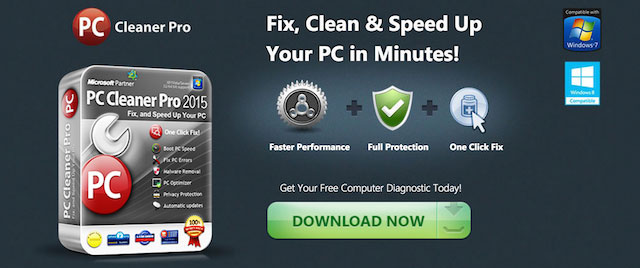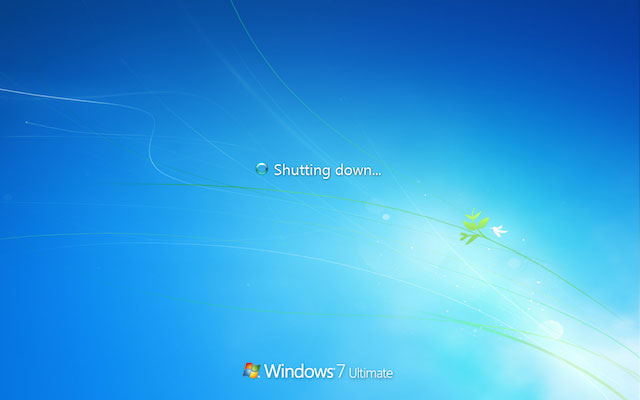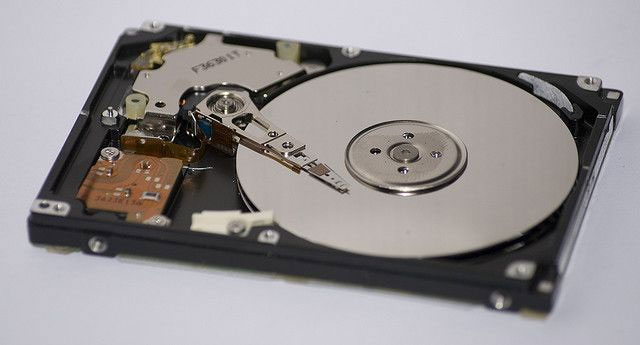10 common myths about computers that you often believe
For most tech enthusiasts, computers are relatively simple machines to buy, operate, and (for the most part) understand. For the average non-tech-oriented consumer, however, they are intimidating devices, made even more intimidating by jargon, misconceptions, and deception.
In today's article, let's join TipsMake to debunk the 10 most common misconceptions about computers that still exist today.
1. You need to regularly defragment your drives

Here's everything you need to know about defragmenting a modern computer.
Windows computers have a built-in defragmentation utility that runs automatically in the background on a pre-set schedule. On macOS, Macs have a file system (macOS HFS+) that automatically defragments files in a process called HFC, or Hot File Adaptive Clustering.
Also, many modern computers now come with SSDs or flash storage that you should never defragment – that will actually damage your SSD.
2. Viruses and spyware slow down your computer

Whenever a PC user experiences a slowdown, malware is often blamed. Here, you can learn about the differences between malware, viruses, spyware , etc.
While it is always possible for your computer to become infected with malware, modern malware is designed to exploit your interests and often runs stealthily in the background. As such, you will usually not notice any performance degradation due to the infection.
Instead, it's more likely that your computer is slow because of too many processes running at once, unnecessary plugins and add-ons hogging CPU usage, lack of RAM or free disk space, or hardware problems. Or it could just be that your computer is getting old and it's time to replace it.
3. Paid cleaning software to improve performance

We've all seen ads like "Download X-Junk Removal Software for 300x Faster Speeds." These programs promise to remove registry errors, download driver updates, uninstall programs you can't uninstall manually, or clean up "problems" of dubious origin and purpose.
The truth is, this is junk software and it is never needed, no matter what operating system you are using.
These programs are often used to deliver malware such as spyware or adware and rarely do anything beneficial. Registry entries are very small. Deleting them will only free up a small amount of space and will not provide any performance benefits.
If a driver update is needed, you can download it yourself if and when you are prompted or encounter errors with your peripheral.
Paid uninstallers are really unnecessary. If you can't uninstall an application completely, the files they leave behind are often in the registry and are too small to bother with.
The problems that real cleaning programs find are often not that serious, so they're not worth the money.
4. You don't need antivirus software
The two most common reasons for not needing antivirus software are usually: "I'm using a Mac and Macs don't get viruses" or "I'm not doing anything online ( torrenting , watching porn, visiting spam sites) that would cause a virus."
Both are completely incorrect. You always need an antivirus program .
First, let's address the case of Mac users. Macs used to be immune to viruses, but that's because bad guys target Windows computers because they dominate the market.
As things changed and macOS continued to gain market share from Windows, hackers turned their attention to Macs, making them no longer immune.
In the second case, remember that you are never safe when using a computer. Every time you turn it on, you are taking a risk.
Not watching porn, torrenting, or only visiting trusted websites isn't enough to keep you safe from all threats. In fact, an antivirus program can't guarantee 100% protection either, but it certainly helps.
5. Turning on and off the computer frequently is not good/Not turning off the computer at night is not good

There is no absolute truth here: Leaving your computer on and allowing it to sleep when not in use is a safe and effective way to avoid having to turn it on and off so often. System resources are used and battery/power consumption is minimal when in sleep mode.
On the other hand, you should turn off your computer when it is not needed to run. Every computer component has a limited lifespan; turning off your computer when it is not needed will allow the components to last a little longer.
6. Deleting contents from a hard drive will actually remove them completely/A magnet can be used to securely erase data

It's reassuring to know that anything we delete from our PC is gone forever. But unfortunately that's not the case.
When you delete data, the visible traces of its existence may disappear, but with the way storage devices work, the actual data remains until it is overwritten.
To keep things simple, think of your data as a set of footprints on a dusty floor. When you leave the room, your footprint remains, but as more and more people enter, they begin to replace your footprint with their own.
This is pretty similar to how data storage works. Deleted files are marked as available space on your drive, allowing the data to be overwritten. That will eventually happen, but until it does, the data is still recoverable.
To actually erase the data, some people suggest using a magnet. This idea would work if you were still using floppy disks, but with modern HDDs or flash storage devices, magnets are an ineffective way to destroy data. Instead, experts recommend one of two methods:
- Use a specialized program on your hard drive and overwrite the data with a series of 1s and 0s until it is unrecoverable.
- Take your drill and drill 10 to 12 holes through the drive in a random pattern, rather than drilling in a straight line.
7. Macs are better than PCs/Macs are overpriced
Macs are PCs too, just PCs that run macOS, not Windows or Linux. That's true, it's not like they're better than Windows PCs.
While they're certainly not budget PCs, things are slowly changing, with some Apple devices actually coming close to matching Windows options in price.
8. To protect yourself from vulnerabilities, use Firefox/Safari/Chrome/IE

Browser 'X' being more secure than browser 'Y' is a comparison that has little relevance to consumers. Browsers are simply execution environments for JavaScript, and as such, they are all equally vulnerable to exploits and attacks.
It's also important to note that most browser-based attacks come through browser add-ons and plug-ins, not the browser itself. To protect yourself, download a good antivirus program that can detect both online malware and local infections.
9. More cores, RAM, etc… are always faster
More is better. Usually, yes. Adding more RAM will allow your computer to run a little more efficiently by reducing its reliance on virtual memory. This will make your computer run faster.
A high-end quad-core processor will outperform a low-end 8-core processor in almost every case.
Also, the word 'better' means things will vary from case to case. Having more cores will make most programs run faster, but there will still be trade-offs in other areas, like battery life.
While more is usually better, it is not always true.
10. Building your own PC will save money
Years ago, this was true. Today, it's often cheaper to buy a mid-range PC than to buy a pre-built one. You can still save money by building a higher-end machine, but for most consumer-oriented PCs, it's usually better to buy them when they're on sale.
That doesn't mean building your own PC isn't worth it. For those who prefer a more hands-on experience or just want to customize their machine to their liking, building your own PC is a great idea.
Believing in these misconceptions can diminish your overall experience. Enjoy your PC to the fullest without worrying about these myths.
You should read it
- 11 misconceptions about the most common human body that billions still believe
- 15 common but misconceptions about science and technology
- Common Misconceptions About Cancer
- 7 harmful misconceptions about the flu that can put your life in danger
- 5 Misconceptions About Password Security
- Misconceptions about UI/UX design debunked
 7 Useful Changes Microsoft Should Make to File Explorer
7 Useful Changes Microsoft Should Make to File Explorer 6 Tasks You Should Do Regularly on Your Windows Computer
6 Tasks You Should Do Regularly on Your Windows Computer How to use Click to Do on Windows 11
How to use Click to Do on Windows 11 Instructions for pinning folders to the Taskbar on Win 7, 8, 10
Instructions for pinning folders to the Taskbar on Win 7, 8, 10 How to pin Command Prompt to the Taskbar and run it with Admin rights
How to pin Command Prompt to the Taskbar and run it with Admin rights How to Recover Deleted Apps on Windows 11 Computer
How to Recover Deleted Apps on Windows 11 Computer